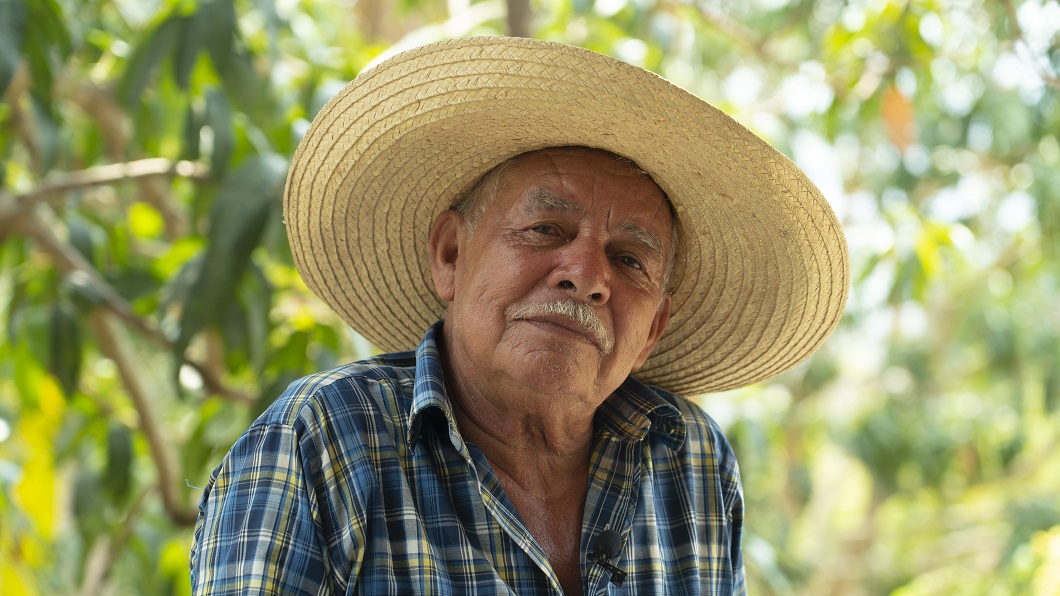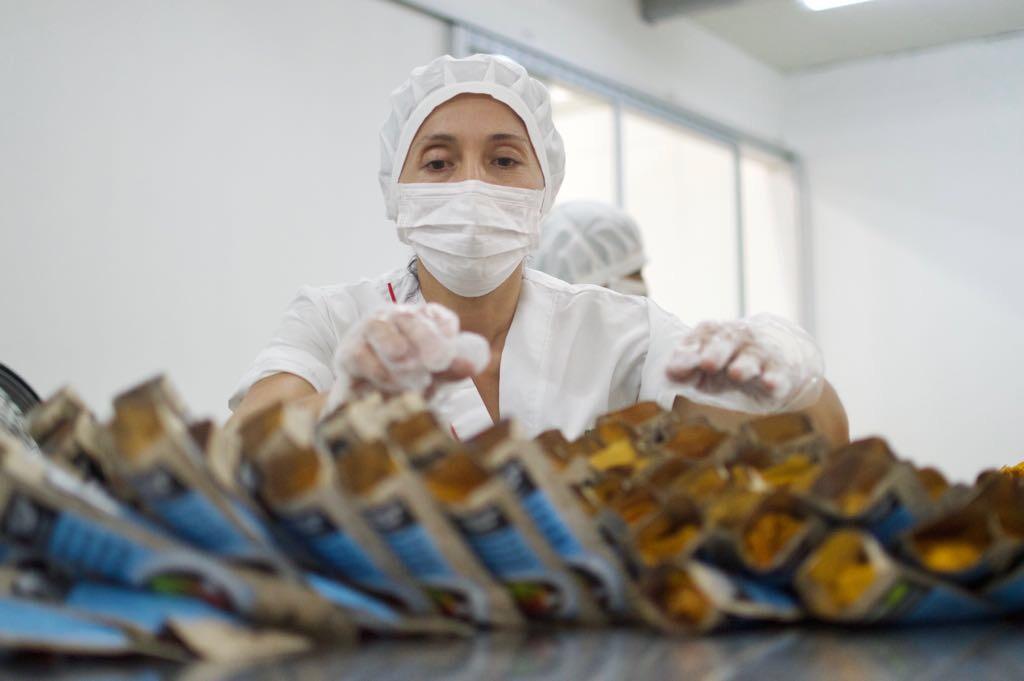Why traditional investment indicators don’t always apply
Nathalie's Direct Trade sources fruits from smallholder farmers in Colombia. They are processed and packaged in the country of origin.
Nathalie’s Direct Trade grew by more than 70 per cent in 2020. How did you secure the funding you needed to support this growth?
I had a credit from the bank that I could use. But in previous cases when I’ve needed funding when increasing imports I’ve taken private loans from friends and family. Even if I had purchase orders ready, the bank did not back me up.
Do you feel that being a woman made a difference in accessing finance for your business?
No, I would not say in this case that gender had anything to do with it.
Your business is based in Sweden. Nordic countries are considered among the most egalitarian in the world. Are there specific policies that helped you expand in Sweden?
No, I would not say so. However, when it comes to governmentally financed programs for mentoring/coaching entreprepreneurs and startups, I have benefitted from being a woman. Some programs even give priority if your parents are born outside Sweden, which mine are.

Did you reach out for funding in South America and Europe? If so, how did your experiences compare in different regions?
Yes, I have. My experience from European countries outside of Sweden is that there seem to be many more clusters of Business Angels and philanthropic initiatives than in Sweden and South America. But, as in Sweden, many require a minimum turnover, which in my case implied I could not apply for funding. In South America there are some initiatives by impact investors, but I don’t have any experience with them. There is a LOT of money in South America and my perception is that they mainly support local initiatives.
My general impression is that investors in the regions you mention are very interested in investing in sustainability, but they come from a venture capital background. They analyse business cases with “traditional” models. Companies working with inclusive business models can be very profitable, but pay-back time can be a bit longer for example. Traditional business Key Performance Indicators (KPIs) need to be complemented with KPIs that can‘t necessarily be measured monetarily. For example, in my case, one KPI (which is also a Sustainable Development Goal) is a measure of the hectares of organic certified land. We can also measure the number of small-scale farmers impacted by our direct trade network and purchases. Indirectly, the more organic certified hectares and number of farmers we work with, the larger impact we can offer the end-consumer to contribute to. But that has no direct monetary KPI in terms of turn-over or pay-back time. I would like to encourage investors to broaden their perspective when analysing investment opportunities. “Old school” needs to meet up with the “new” and find a new synthesis.
Another experience is that investors focus very much on scalability, even those who work with “changing the world.” It is understandable, since scalability makes the business case stronger. But this tends to imply that investors to very large extent focus on digital and tech innovation. There is a perception that only tech is scalable. This in particular is the case in Sweden. If you don’t have a prototype of a digital/tech innovation/app, then you are basically out. Here comes a gender reality, that mostly men have a tech background, so there are less women out there developing new tech solutions and quite few women investing in the area.
Does your business particularly support women farmers/growers?
Yes, we do. However, there are not many female small-scale farmers. The majority work with taking care of the household and the children, while the men are working with their land. But we do have cases where the main farmer is female, in particular in pineapple association Asoagronorca. In SDG1, our goal is to increase the number of small-scale farmers from 302 to 986 by 2024, of which 220 are targeted to be female farmers.
How important is this part of your inclusive business model and what are your goals related to supporting and empowering women in your supply chain?
This is a cornerstone. Since we do PICO (Produced in Country of Origin), which means Nathalie’s products are also processed and packed in Colombia, we create employment in particular for women (single mothers in the Fruandes program). This is very uncommon in the food business, which is bulk driven and where final products are industrially packed and processed in countries of destination.
The Global South has for a very long time just been a provider of raw or semi-raw materials. By leaving a larger share of the value chain in the country of origin, we create more employment for women, hence a more egalitarian trade, good for everybody along the chain. Another SDG1 indicator in this case is to increase the annual income of low-income employees engaged from 48 to 200 by 2024, of which at minimum 120 are women.
I want to look everybody along the value chain in the eyes, without being ashamed.

What recommendations can you give to other female founders and entrepreneurs who are focused on scaling and funding their inclusive businesses?
Know your strengths and if this is not your strongest area, find somebody in your network/advisory board who can help you to set a structure and strategy for your funding process. I had somebody in my network who spent at least 50 hours creating an excel sheet for my business case.
Aside from this:
- Ensure you have a really great pitch. It took me almost two years to both content-wise and graphically get a great pitch. Make a short movie, max 4 minutes, of your pitch.
- Analyse different scenarios and paths and work on them in parallel. I worked more than two years on parallel scenarios since I did now know which path to take. Finally, one path showed itself clearly, which led us to today being part of the Fuud Group.
- Find your team or co-partner! Don’t do this yourself. Find those who complement you and if you are not the sales star, co-partner with someone who is!
- It is common to think that you can do this organically yourself and that you want to build a company yourself. For some this is the right path. But after almost eight years of trying to scale up by myself, I’m very humble and realize that I’m not a company builder, but there are other people who are really good at it. It comes back to knowing your strengths and finding those who complement you. Basically, it’s a choice of strategy. In which context can you be, to focus on what you are best at, while there are resources and others who do the rest?
- It’s easy to fall in love with your inclusive business and social impact you want to create. But an investor is mostly interested in the business behind it, the pay-pack. Be sure you have a plan to scale up that is sustainable and attractive.
